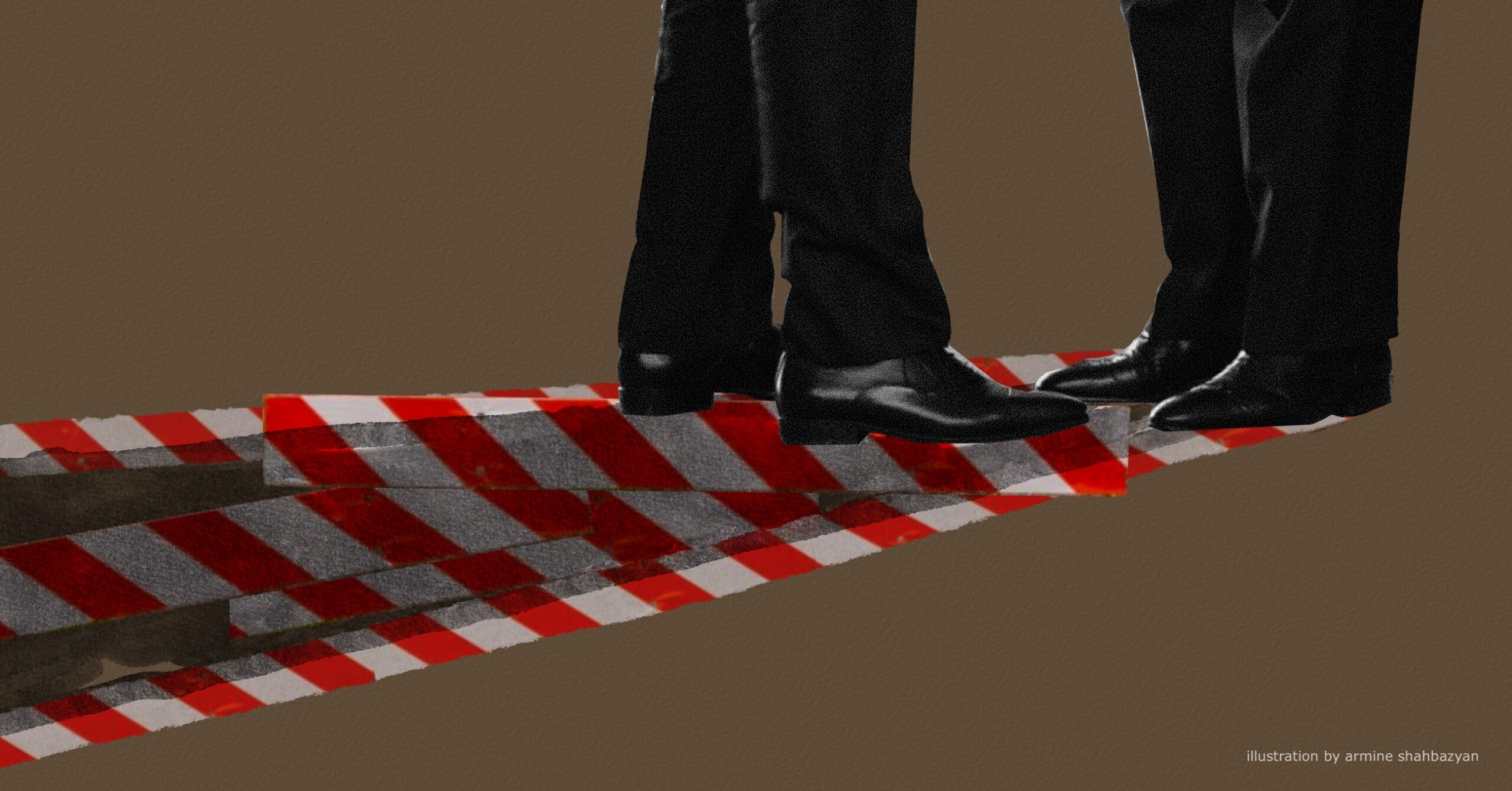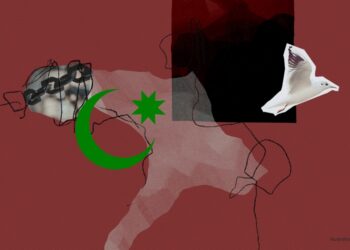
Listen to the article.
On April 30, RFE/RL’s Armenian service (Azatutyun) reported, citing a European diplomatic source, that Hungary is blocking the EU’s military assistance to Armenia. Earlier, RFE/RL had reported that a “preliminary agreement” had been reached within the EU to provide €10 million to Armenia over the next two-and-a-half years to finance the establishment of a mobile field camp for a battalion-size unit. The draft document stated that its objective is to contribute to strengthening Armenia’s defense capabilities.
The EU first announced that it would consider providing non-lethal support to Armenia under the European Peace Facility (EPF), an off-budget fund, in November 2023 after having turned down Armenia’s request months earlier. In early April, EU foreign policy spokesperson Peter Stano suggested that there was no consensus among EU members. According to RFE/RL’s source, Hungary is blocking EPF assistance to Armenia despite its non-lethal nature and limited scale and is demanding similar assistance for Azerbaijan, which EU leaders are apparently considering meeting to overcome the deadlock. While other EU members seem to be willing to have Azerbaijan also benefit from the fund, Azerbaijan must request it itself.
Baku’s Friend in Brussels
This is not the first instance Hungary has sided diplomatically with Azerbaijan. In September 2023, as Azerbaijan had effectively taken control of much of Nagorno-Karabakh in a lightning offensive, Hungary reportedly blocked a joint statement by all EU members condemning the military operation, which was instead released by the EU’s foreign policy chief Josep Borrell. Hungary’s foreign minister said that Hungary, along with several other members, had “made comments and proposals for the joint statement, but consensus was not reached.”
Borrell’s statement warned that the “forced displacement of the civilian population through military or other means will be met with a strong response by the EU.” No such response ever materialized, partly, perhaps, because of opposition from Hungary and other partners of Azerbaijan. In early October, following the total displacement of Karabakh Armenians, Hungary and Romania opposed any consideration of “tough measures” against Azerbaijan or “strong signals of disapproval toward Baku” according to Reuters. Hungary further opposed any potential talks of EU-wide sanctions for the ethnic cleansing, with Romania and Austria having “reservations” about the idea, according to Politico.
Hungary sided with Azerbaijan outside the EU as well. In October 2023, a statement delivered by France on Nagorno-Karabakh at the UN Human Rights Council was backed by all EU members except Hungary, Italy and Romania.
Almost a year earlier, in November and December 2022, Armenia reached out to these three countries to discuss the deployment of an EU civilian observer mission (EUMA) to the Armenian side of the border with Azerbaijan after its large-scale incursion into Armenia in September 2022. The final decision came in January 2023 and was uncharacteristically not blocked by Hungary. When Armenia’s Foreign Minister visited Hungary last October, he thanked Hungary for its “participation” in the EUMA. Hungary and others also did not block the December 2023 decision to nearly double the EU mission’s staff.
The Safarov Extradition
Azerbaijan’s ties with Hungary first came under the spotlight more than a decade earlier. On August 31, 2012, Ramil Safarov, a convicted Azerbaijani officer, was extradited from Hungary to Azerbaijan. Eight years earlier he had hacked to death Gurgen Margaryan, an Armenian officer, during a NATO-sponsored language training course in Budapest while he was asleep. Safarov was convicted to life imprisonment in Hungary, but was pardoned by Aliyev and released upon his arrival to Azerbaijan and received a hero’s welcome there.
The move was widely criticized, including by the UN, EU, U.S., NATO, and the OSCE Minsk Group. Armenia immediately suspended diplomatic relations and all official contacts with Hungary. Then-President Serzh Sargsyan accused Hungary, an EU and NATO member, of having made a deal with the Azerbaijani authorities. He called it a “huge mistake” by the Hungarian authorities. Aliyev’s foreign policy advisor Novruz Mammadov stated that the agreement to extradite Safarov to Azerbaijan was reached when Orban visited Baku in June 2012. Though Hungary’s Foreign Ministry said Safarov’s release was “unacceptable” and expressed “utter disapproval” that Safarov received pardon in Azerbaijan, Orban personally defended the decision by pointing to Hungary’s own interests, rather than those of Armenia or Azerbaijan.
Hungary’s motive behind the backdoor deal remains contested. At the time, media reports linked it to the impending Azerbaijani purchase of Hungarian government bonds worth €2-3 billion. A later investigation linked it to a $7 million transfer to a Hungarian bank account belonging to an offshore company owned by the son of Yaqub Eyyubov, Azerbaijan’s Deputy Prime Minister around the time of Safarov’s extradition. Hungary denied any connection.
Expanding Hungary-Azerbaijan Ties
Hungary under Prime Minister Viktor Orban, maintains cozy relations with many non- or anti-Western leaders, such as Russia’s Putin, China’s Xi, Turkey’s Erdogan. Orban’s close ties with Azerbaijan, which grew increasingly closer after the Safarov debacle, may be viewed through this prism. Recently, Orban drew much international attention for blocking the EU’s 50 billion euro assistance to Ukraine and delaying Sweden’s NATO accession.
In 2014, Orban and Aliyev declared a strategic partnership in Baku, and then in 2023, upgraded their ties to “enhanced strategic partnership”. Hungary has become an observer member of the Organization of Turkic States (formerly the Turkic Council) which brings together Azerbaijan, Turkey and the Turkic-speaking states of Central Asia. During the 2020 Artsakh war, Hungary was the only EU member to explicitly side with Azerbaijan, while most either called for an end of hostilities or kept silence. Hungary’s Foreign Ministry stated that “Nagorno-Karabakh lies within the internationally recognized borders of Azerbaijan, and Hungary supports the territorial integrity and sovereignty of the states as a general principle of international law.”
When he visited Baku in January 2023, Orban praised Aliyev as a wise leader. “We understand each other in foreign policy. I have learned so much from President Aliyev in the last ten years in how to lead the country so well in a very complex environment,” Orban said. “Unfortunately, I couldn’t learn everything he knows. Because we are on the radical side, whereas he is a politician known for his more moderate views. I need to learn from him how to become more successful in the international arena in a moderate way.”
In October 2023, as Nagorno-Karabakh had been effectively ethnically cleansed, Orban did not hesitate to back Azerbaijan, calling it a “strategically important” country for Europe’s energy independence from Russia. Azerbaijani gas supplies to Hungary commenced earlier this year through an interconnector of the Southern Gas Corridor.
Rapprochement
In recent years, Armenia and Hungary have restored diplomatic ties and high-level contacts have become frequent.
The rapprochement appears to have begun following the 2020 war. In late November 2020, Hungary’s State Secretary for the Aid of Persecuted Christians, Tristan Azbej, announced that his government will support the “humanitarian and reconstruction efforts of the Armenian Apostolic Church in the Middle East with a $1 million donation.” Specifically, Hungary supported the restoration of a damaged school in Syria and a church in Iraq and provided aid for Armenian Catholic families in Lebanon. According to an Armenian Church spokesperson, in Armenia, Hungary funded the renovation of a Hayordats Tun, an educational institution of the Armenian Church, in Gegharkunik.
In June 2021, Hungary’s Deputy Foreign Minister Zsolt Semjén made a surprise visit to Armenia. While he met with Catholicos Karekin II with a group of Hungarian pilgrims, no meetings with Armenian officials were reported.
In late December 2021, Hungary mediated the release and repatriation of five Armenian prisoners of war from Azerbaijan and donated 100,000 doses of the AstraZeneca vaccine to Armenia to fight Covid. In a February 2022 interview with the state-run Armenpress agency, Deputy PM Semjén pointed to these two events as “an active expression of solidarity between the Hungarian people and government and the Armenians.” He expressed hope that diplomatic relations can resume. Armenia’s Deputy Foreign Minister Paruyr Hovhannisyan welcomed these moves, but stated that “additional steps are needed” for the restoration of diplomatic ties.
The breakthrough came on December 1, 2022, when on the sidelines of the OSCE Ministerial Council meeting in Poland, Foreign Ministers Ararat Mirzoyan and Péter Szijjártó met and issued a joint statement announcing the restoration of full diplomatic relations and expressed their intention “to open a new chapter in their relations based on mutual trust and respect towards international law.” The two countries appointed non-resident ambassadors in May and June 2023. Mirzoyan defended the move, and insisted that Armenia’s stance regarding Safarov’s extradition has not changed, arguing that it is important to look to the future instead. High-level contacts continued in mid-2023 when PM Nikol Pashinyan met with Deputy Prime Minister Semjén and President Vahagn Khachaturyan met with President Katalin Novák discussing economic cooperation, tourism, culture and education.
Hungary failed to condemn the 10-month long blockade of Nagorno-Karabakh and as noted above, reportedly blocked an EU-wide statement condemning the September 2023 Azerbaijani offensive. As Karabakh Armenians were forcibly fleeing their homes in late September, Hungary’s State Secretary for the Aid of Persecuted Christians, Tristan Azbej, announced that Hungary was donating €102,000 to the Armenian Red Cross to assist the displaced Karabakh Armenians.
Since then, three high-level visits have taken place. In late October 2023, Hungary’s Foreign Minister Szijjártó visited Yerevan, while Armenia’s President Khachaturyan paid a visit to Budapest in February 2024 for meetings with his Hungarian counterpart Katalin Novák, Prime Minister Orban, and Parliament Speaker Laszlo Kover.
A week after the report of Hungary blocking EU’s security assistance to Armenia, Foreign Minister Mirzoyan headed to Hungary, where he met with his counterpart Péter Szijjártó, Deputy Prime Minister Zsolt Semjén, and Deputy Parliament Speaker István Jakab. The foreign ministers announced that they have agreed to mutually open embassies in each other’s capitals. There was also focus on the upcoming Hungarian presidency in the EU Council in the second half of 2024. Szijjártó said that Hungary “wants to work with Armenia on the development of relations” during its EU presidency, including advancing the partnership agenda and visa liberalization dialogue. In the meeting with Semjén, Mirzoyan said there is “still a great unrealized potential both in terms of political dialogue and especially in terms of economic ties,” with officials focusing on cooperation in education, people-to-people contacts and tourism, namely direct flights between Yerevan and Budapest.
EPF was not mentioned publicly by Mirzoyan or Hungarian officials, but on May 14, PM Pashinyan said he expects a final EPF decision on Armenia. “We hope for the inclusion of Armenia into the European Peace Facility and in this regard, we rely on the support of all EU member states,” he said.
Politics
Azerbaijan-Israel Relations: Implications for Armenia
The deepening alliance between Azerbaijan and Israel carries significant implications for Armenia, notably Azerbaijan's considerable acquisition of advanced Israeli weaponry which it has extensively employed against Armenian forces in the past decade.
Read moreEthnic Cleansing, Genocide or Displacement?
This article explores the most accurate term to describe the de-Armenization of Nagorno-Karabakh by comparing various perspectives and examining the legal and political applicability of these terms.
Read moreGeorgia’s Struggle Against the “Foreign Agent Bill”
Over the past three weeks, thousands of people in Tbilisi have protested every night, fearing that the “foreign agent” law would push Georgia towards authoritarianism and Russia’s influence. Taline Oundjian covers the recent events.
Read moreAliyev Uses Religion to Hide His Dictatorship
Allegations against European institutions of being Islamophobic, a serious assertion by Azerbaijan, is part of a much larger anti-West campaign which is often insufficiently understood and analyzed by Western partners, writes Tatev Hayrapetyan.
Read moreUntangling Armenia’s Indian Arms Procurement
As the procurement of Indian weapons by Armenia has come under the spotlight, various Indian outlets, ranging from credible publications to blogs, have extensively and often speculatively covered Armenia’s arms acquisitions, underscoring the need to clarify the details. Hovhannes Nazaretyan’s investigation.
Read moreEVN Report
Media Festival







